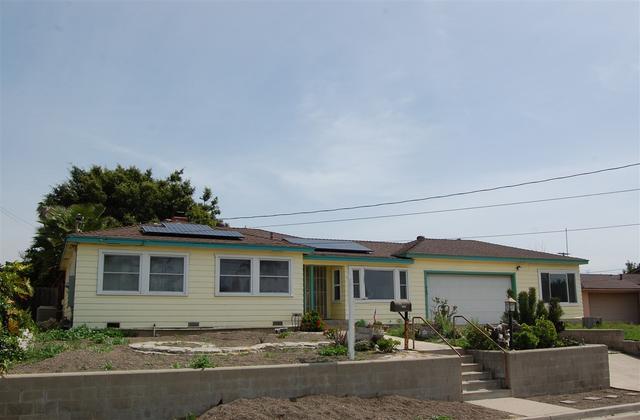Find Distressed Properties

Who isn’t looking for great distressed investments to possibly flip or add to your real estate portfolio? We know just how to help you.
Key Takeaways
- A distressed property is one that can no longer be maintained by the owner, for a variety of reasons.
- Finding distressed properties can be made easier with some creative strategies.
- Don’t forget to incorporate important tips when finding distressed properties in your market.
Maybe you have bought and sold a few properties over the years or sold as many 200+ homes like I have, perhaps you’re new to real estate investing or are a professional interested in trying their hand at a new strategy, but regardless, chances are you’ve been wondering how to find distressed properties for sale in California. Distressed properties in California are attractive to investors because they often offer deals that are undervalued, helping to increase the prospective profit margin. Below you will find a discussion on creative ways to find distressed properties, including how to buy distressed properties, and some important tips to keep in mind.
What Is A Distressed Property?
A distressed property is a property that can no longer be maintained by the current owner, either physically or financially or both. Some properties are found to be in poor condition due to neglect, or because it is at risk of being foreclosed upon.
How To Find Distressed Tennessee Properties: 7 Creative Tips
- Look for properties that are in a state of neglect.
- Search for properties with delinquent taxes.
- Find properties with delinquent mortgage payments.
- Identify properties that legally must be sold.
- Look into probate real estate opportunities.
- Peruse REO and bank-owned property listings.
- Don’t forget about government-owned properties.
If you’re wondering where to find distressed California properties, there is a traditional method that transcends time: hopping in the car and driving around. Assuming you already have a target neighborhood in mind, simply drive around and look for properties that stand out from others due to a state of neglect. Tell-tale signs to look out for include an overgrown yard, broken windows and shutters, exterior paint that is faded or peeling, notices that are posted on windows and doors, and junk mail and newspapers that are left uncollected. If you find a property that meets any or all of these descriptions, be sure to write down the address so you can start investigating.
For those wondering how to find distressed California properties other than driving around, there are multiple methods to searching online. However, it should be noted that distressed properties come in many forms, and are not always called “distressed” outright. Look for ‘distressed properties for sale by owner’ that are delinquent in taxes and mortgage payments, properties that must be sold legally due to bankruptcy or divorce, probate deals, and properties that are owned by the banks or the government. Starting with the first example, finding properties with tax delinquencies is luckily a straightforward process. The hardest part will be finding your local tax assessor’s web page that lists these properties. After you have found the site, simply search the listings until you have found a property you’re interested in. Another type of property that might be in distressed is one for which the owners have been delinquent on their mortgage payments, also known as “underwater.” These properties are usually in “pre-foreclosure,” and can be found on multiple listing sites such as your local county website or paid sites such as Foreclosure.com.
Properties that must be sold legally, such as through bankruptcy or divorce, may also be in distress. When looking through your county foreclosure listings, you may have already noticed listings that are listed as being auctioned for bankruptcy or divorce. Although not every county is required to list such properties, you can at least find properties that are up for auction. The probate court is yet another creative space to find distressed properties. A probate property is one that was owned by someone who has passed, but without leaving the property to anyone in their will. It should be noted that making an offer on a probate sale requires a special process, as the property is being sold by an attorney or an executor. Finally, investors should search through REO (real estate-owned) and government-owned properties that have already been foreclosed upon. When a property owner fails to make mortgage payments, the provider of the mortgage loan (in this case the bank or the government) retains the rights to reclaim the property. Many local and national banks have their own property listing sites, as do government entities such as Freddie Mac and Fannie Mae.
How To Find Distressed Properties On The MLS
Although a real estate license is required to access the MLS, investors have the opportunity to work with a professional with access to obtain listings. Listings are identified with a status such as short sale that can help signal a distressed property. In addition, look for properties that have been listed for longer than 90 days. The 90-day mark is a key indicator that will signal the motivation level of the seller. The longer a property stays on the market, the more motivated, or desperate, the seller will become. This can often lead to great deals and savings for investors if they know where to look.
Also, you can now search on sites by using keywords like, “distressed, fixers, flip, investment opportunity”. HSHS Advisors will load up specific keywords as they enter the information in the MLS for those that know exactly what they want.
3 Important Tips For Buying A Distressed Property
Choose a target neighborhood: If you don’t already have a target market in mind, selecting a neighborhood will help focus your search. If a specific neighborhood does not yield satisfactory results, there is no harm in widening your search gradually.
Don’t just look for the “distressed property” label: It is important to keep in mind that many sellers would never want to call their own house a “distressed property.” If you’re wondering how to find distressed properties for sale without actually using the word “distressed,” look for owners who are quite motivated to sell. This may be because they are delinquent on taxes or mortgage payments, or are going through bankruptcy or divorce. Remember to search through government and lender listings, as well as probate auctions.
Get pre-approved with one of our preferred lenders: Once you find the perfect property for sale, time may be of the essence. By making sure you are ready to make a credible offer by getting pre-approved for a loan, buying distressed properties will be a much smoother process.
Finding distressed properties for sale is no easy feat, but once you combine several creative strategies for identifying and targeting these properties will offer great reward. By incorporating our creative tips listed above, including the important tips to keep in mind, you will be on your way to finding these coveted investment opportunities.
Between residential and commercial properties, which type of distressed property would you target? Feel call us today at 877-979-3226 to discuss your real estate options and get answers to your questions.
UPDATED: April 5, 2018



